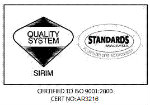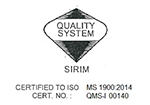Leading Islamic finance: What’s next?
Malaysia holds the world’s record in Islamic finance. In the ICD-Refinitiv Islamic Finance Development Indicator (IFDI) Report 2022, out of 136 countries, our country ranked first for ten consecutive years based on five indicators i.e. financial performance, knowledge, governance, sustainability and awareness.
In addition, in the State of the Global Islamic Economy (SGIE) Report 2022, Malaysia also leads the overall Global Islamic Economic Indicator for business activities particularly in Islamic finance, halal food, Muslim-friendly travel, and media and recreation sectors. Each sector is gauged based on four components, namely financial, governance (halal certification and Shariah regulatory), awareness and social impact.
Ranked first in Islamic finance and halal economy are not good enough? Well, we are also ranked first in the 2023 Islamic Well-being Index for Muslim Countries, a position that we regained when the Index was first published in 2013. Based on five objectives of Islamic law (Maqasid al-Shariah), Malaysia leads the maqasid for protection of intellect (‘aql) and protection of wealth (maal). The result indicates that Malaysian Muslims experienced a higher state of well-being relative to other Muslim majority countries, post-COVID period.
So, what’s next for our Islamic development agenda?
Islamic economic sector is expected to reach a global value of US$7.7 trillion by 2025. SGIE Report estimates that Islamic finance total assets are expected to reach US$4.9 trillion by 2025, an increase from US$4 trillion in 2021. At cumulative annual growth rate (CAGR) of 7.5% from 2021, Muslims spending is forecasted to reach US$2.8 trillion by 2025 on halal food, pharmaceuticals, cosmetics, modest fashion, travel and media.
To boost Malaysia’s economic growth, one of the key strategies in the 12th Malaysia Plan (2021–2025) is to capture a bigger market share of the global halal industry. Islamic finance plays the role as a key enabler in Malaysia’s Halal Industry Master Plan 2030. Along with halal and lifestyle, Islamic finance is also among three vital domains within Malaysia’s Islamic Digital Economy under MDEC.
The 2025 forecast for the global halal economy comprised 64% Islamic finance and 36% other non-financial sectors. The composition at global level however does not reflect the overall halal economy in Malaysia. Halal export value contributed 7.4% to GDP, whereas the contribution of Islamic finance was only 1.2% to Malaysia’s GDP in 2022.
The Islamic finance sector is heavily supported by government and institutional players to a point that Malaysia becomes the world’s largest issuer of sukuk. In supporting the halal economy however, Islamic financing is mainly utilised by smaller halal-certified businesses in the domestic market. While we applaud the global growth of Islamic finance, it represents less than 1% of global financial assets and is highly concentrated in the Gulf Cooperation Council (GCC) countries, Iran and Malaysia.
One may argue that the Islamic finance has not reached its full potential to fulfil economic and social needs beyond corporate and conglomerate profits. How do financial institutions driven by profitability fit with Maqasid al-Shariah and the vision of the MADANI economy?
Islamic finance should be at the forefront in tackling social and environmental issues. To achieve a net zero greenhouse gas emissions target by 2050, Bursa Carbon Exchange was introduced as the world’s first Shariah-compliant platform for companies to voluntarily trade high-quality carbon credits via standardised carbon contracts.
- In addition to PPP financing or impact investing, the third sector economy through zakat (obligatory alms), waqf (endowment) and infaq (charity) is another pillar to drive Islamic finance inclusion. Bursa Malaysia has recently enhanced its listing requirements for real estate investment trusts (REITs) and exchange-traded funds (ETFs) to include the waqf feature. Waqf assets in Malaysia are estimated to be worth more than RM1.3 trillion but only 12% or 3,500 hectares of registered waqf land has been developed. In the Budget 2023, the Wakaf Madani was introduced, aiming at 20% growth of Islamic social finance sector by 2030.
The KPIs for the MADANI Economy include top 30 of the world’s largest economies, 60% of women participation in the labour force, top 25 in both Human Development Index and Corruption Perception Index and a 3% cap of fiscal deficit. If properly implemented, waqf has the potential to be an instrument to ease the federal government’s budget.
The 12th Malaysia Plan’s Mid-Term Review outlines 17 measures and 71 initiatives which include the advancing of Islamic economy. To be a prosperous and a high-income nation, Malaysia aims for a Gross Domestic Product (GDP) growth of 5 to 6% per year with a focus on high-value-added industries and being a preferred investment destination.
Should the MADANI Economy continue using GDP to measure economic growth?
Scholars and economists have criticised GDP as a misleading indicator for economic success. It ignores mafsadah (destructive) effects of economic activity (e.g. cost of crimes, unemployment or family breakdown) and environmental damage (e.g. cost of pollution or resource depletion). GDP also fails to take into account the maslahah (goodness) value in society such as housework, caregiving or voluntary work.
The philosophy of the MADANI Economy ought to be reflected in an appropriate metric such as Genuine Progress Indicator (GPI), which measures economic well-being by incorporating social and environmental values on top of GDP. Otherwise, the value of Islamic finance will be reduced to commercial activities and remains undervalued, despite the significant impact that the third sector economy such as awqf and voluntary contributions has on quality of life.
For Malaysia to maintain its leadership in Islamic finance, it’s time for the MADANI Economy to implement an outcome-based budgeting and a macro ESG metric such as GPI.




